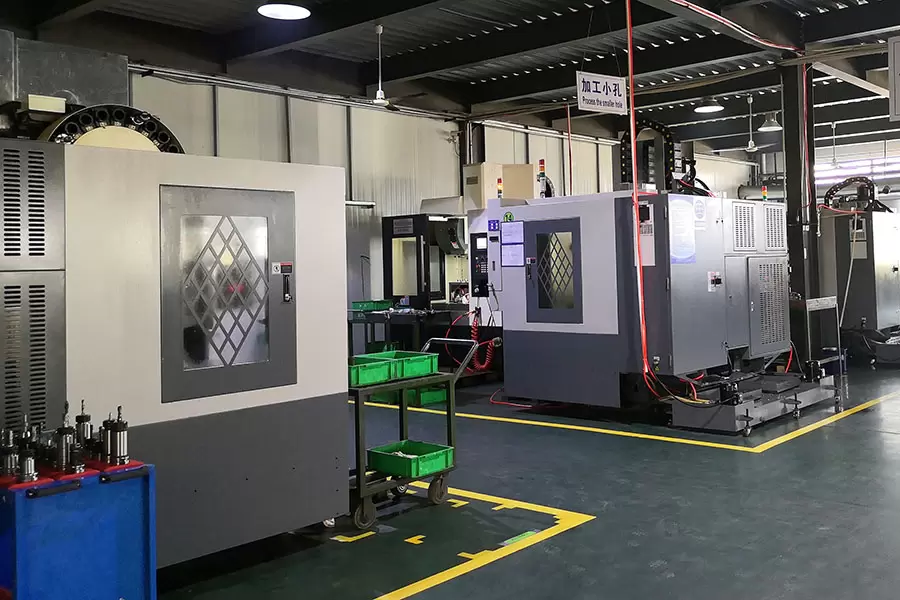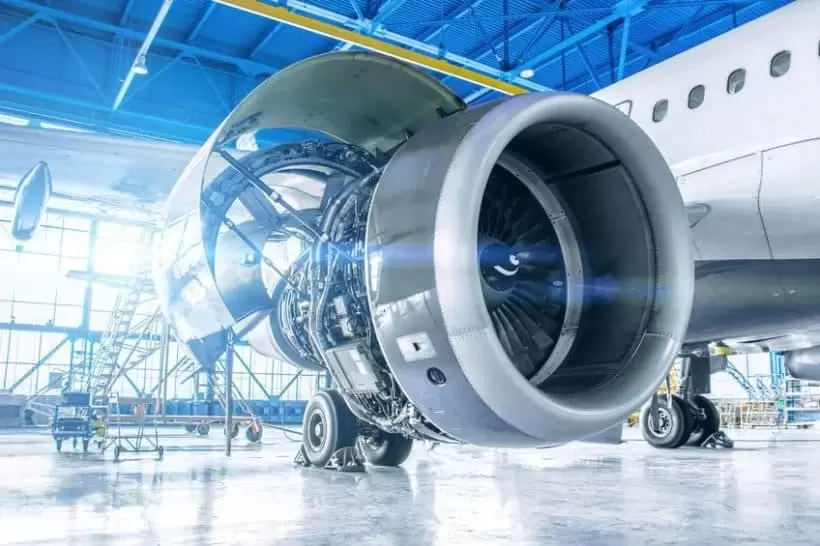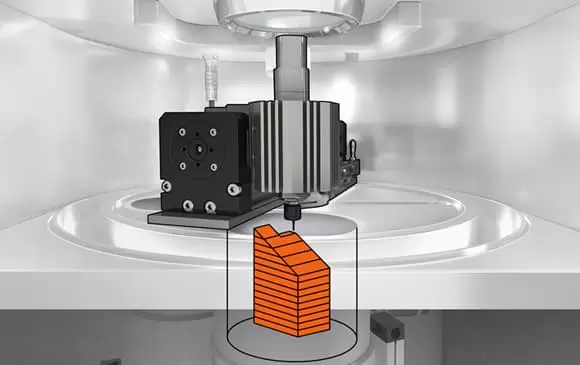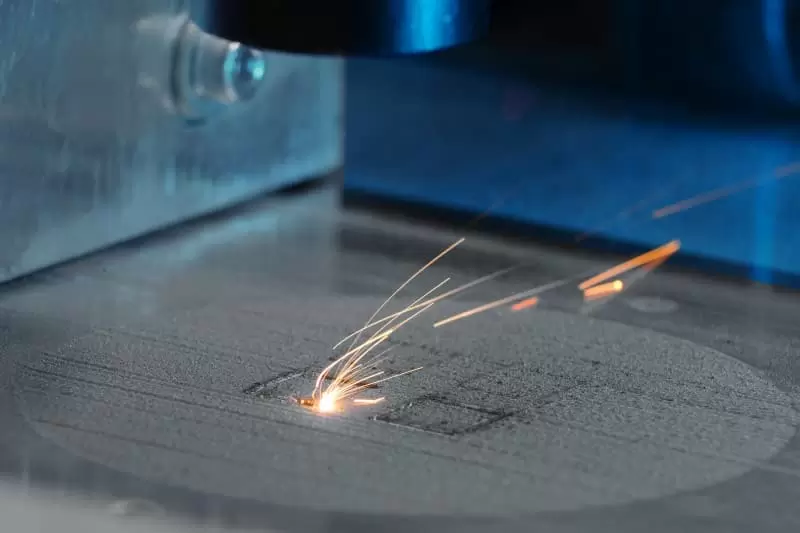Table of Contents:
- Introduction
- Benefits of CNC Machining Services in China
- Challenges of CNC Machining Services in China
- Considerations for Choosing a CNC Machining Service Provider in China
- Case Studies: Successful CNC Machining Projects in China
- Conclusion
-
1.Introduction
CNC machining, also known as computer numerical control machining, is a manufacturing process that involves the use of computer-controlled machines to produce precise and complex parts and components from various materials. CNC machines can perform a wide range of operations, including drilling, milling, turning, and cutting, among others.
CNC machining services in China have gained a significant reputation in recent years due to their cost-effective and high-quality production capabilities. Many companies from different industries around the world outsource their CNC machining needs to Chinese manufacturers to take advantage of these benefits. In this article, we will explore the benefits, challenges, and considerations of using CNC machining services in China, as well as provide case studies of successful projects.
-
2.Benefits of CNC Machining Services in China
- Cost Savings: One of the primary reasons why companies choose to outsource their CNC machining needs to China is the cost savings. Chinese manufacturers offer competitive pricing due to lower labor and operational costs, making it a cost-effective option for companies looking to reduce their manufacturing expenses.
- High Quality Production: Despite the lower costs, CNC machining services in China maintain high-quality production standards. Many Chinese manufacturers have invested heavily in advanced technologies and equipment, as well as implementing quality control measures, to ensure that their products meet international quality standards.
- Large Production Capabilities: Chinese manufacturers have the capacity to produce large quantities of parts and components within tight timelines. This is due to their advanced machinery and streamlined production processes, allowing them to meet the demands of large-scale projects.
- Access to Advanced Technologies: Many CNC machining service providers in China use advanced technologies such as 5-axis machining, high-speed machining, and additive manufacturing to produce precise and complex parts. This gives companies access to cutting-edge technologies that may not be available in their home country.
Overall, outsourcing CNC machining services to China can provide significant benefits to companies looking to reduce costs, increase production capacity, and access advanced technologies while maintaining high-quality standards.
-
3.Challenges of CNC Machining Services in China
Despite the benefits of outsourcing CNC machining services to China, there are several challenges that companies may encounter. These include:
- Language and Cultural Barriers: Chinese manufacturers may not be proficient in English, which can create language barriers when it comes to communication and understanding technical specifications. Cultural differences can also impact business relationships and negotiations.
- Intellectual Property Concerns: Intellectual property protection in China can be a concern for companies outsourcing their CNC machining needs. There have been instances where Chinese manufacturers have copied designs and products without permission, leading to legal disputes.
- Quality Control Issues: Although Chinese manufacturers have made significant investments in advanced equipment and quality control measures, some companies may not adhere to the same standards as those in the West. This can lead to inconsistencies in product quality.
- Communication Challenges: Effective communication is essential when outsourcing CNC machining services to China. However, communication challenges can arise due to time zone differences, language barriers, and cultural differences. This can impact project timelines and overall success.
It is important for companies to be aware of these challenges and take steps to mitigate them when outsourcing CNC machining services to China. This includes choosing a reputable and experienced manufacturer, ensuring proper communication channels are established, and protecting intellectual property through legal agreements.
-
4.Considerations for Choosing a CNC Machining Service Provider in China
When outsourcing CNC machining services to China, companies must consider several factors before selecting a service provider. These factors include:
- Company Reputation and Experience: It is essential to choose a reputable and experienced manufacturer with a proven track record of delivering high-quality products. Companies can research potential manufacturers online, read customer reviews, and visit their facilities before making a decision.
- Quality Control Processes: Quality control measures ensure that the products meet the desired specifications and standards. Companies should choose a manufacturer with a rigorous quality control system that includes testing and inspection at various stages of the production process.
- Communication and Customer Service: Effective communication is crucial when outsourcing CNC machining services to China. Companies should choose a manufacturer that has strong communication channels in place, including proficient English speakers, to ensure clear and timely communication. A manufacturer that offers excellent customer service can also address any issues that may arise quickly and effectively.
- Pricing and Payment Terms: Companies should consider pricing and payment terms when choosing a manufacturer. It is important to negotiate pricing and payment terms upfront to avoid any surprises or additional costs later.
- Intellectual Property Protection: Intellectual property protection is crucial when outsourcing CNC machining services to China. Companies should choose a manufacturer that has strong policies and legal agreements in place to protect their intellectual property and prevent any unauthorized copying or distribution of their products.
By considering these factors when selecting a CNC machining service provider in China, companies can ensure that they choose a reliable and experienced manufacturer that meets their specific needs and requirements.
Click on the V1 Prototype website to gain more CNC Machining Services in China information.
-
5.Case Studies: Successful CNC Machining Projects in China
- Example 1: Automotive Parts Production
A leading automotive parts manufacturer in the US outsourced their CNC machining needs to a Chinese manufacturer to reduce costs and increase production capacity. The Chinese manufacturer had state-of-the-art equipment and a strict quality control system in place. They produced high-quality parts with tight tolerances and delivered them on time. The project was a success, and the US-based company was able to save significantly on production costs. - Example 2: Consumer Electronics Production
A consumer electronics company in Europe outsourced their CNC machining needs to a Chinese manufacturer to produce components for their products. The Chinese manufacturer had advanced technologies and a skilled workforce, enabling them to produce complex and precise parts. The manufacturer also had a strong communication channel in place, allowing for clear and effective communication. The project was successful, and the European company was able to launch their products on time with high-quality components.
These case studies demonstrate the success that companies can achieve by outsourcing CNC machining services to China. By working with experienced and reputable manufacturers, companies can save on costs, increase production capacity, access advanced technologies, and maintain high-quality standards.
-
6.Conclusion
In conclusion, outsourcing CNC machining services to China can provide companies with significant benefits, including cost savings, high-quality production, large production capabilities, and access to advanced technologies. However, companies must also be aware of the challenges that may arise, such as language and cultural barriers, intellectual property concerns, quality control issues, and communication challenges. By considering these challenges and selecting a reputable and experienced manufacturer with strong quality control processes, effective communication channels, and intellectual property protection policies, companies can successfully outsource their CNC machining needs to China.
Key points to remember when outsourcing CNC machining services to China include:
- The benefits of outsourcing, including cost savings, high-quality production, large production capabilities, and access to advanced technologies.
- The challenges of outsourcing, including language and cultural barriers, intellectual property concerns, quality control issues, and communication challenges.
- The considerations for choosing a CNC machining service provider in China, including company reputation and experience, quality control processes, communication and customer service, pricing and payment terms, and intellectual property protection.
- The success of CNC machining projects in China, as demonstrated by case studies in the automotive parts and consumer electronics industries.
Overall, outsourcing CNC machining services to China can be a successful strategy for companies seeking to reduce costs, increase production capacity, and access advanced technologies. By choosing a reputable and experienced manufacturer and mitigating the challenges that may arise, companies can achieve their desired outcomes and remain competitive in their respective markets.
CNC machining is a process of creating precise and complex parts from various materials using computer-controlled machines. CNC machining is widely used in various industries, such as aerospace, automotive, medical, and consumer electronics. CNC machining can produce high-quality parts with tight tolerances, intricate geometries, and smooth finishes.
However, CNC machining can also be costly and time-consuming, especially for small batches or prototypes. That's why many companies outsource their CNC machining needs to China, where they can benefit from lower labor costs, faster turnaround times, and access to a large pool of skilled machinists.
But outsourcing CNC machining to China is not without its challenges and considerations. In this blog post, we will explore some of the benefits, challenges, and considerations of using CNC machining services in China, and provide some tips on how to choose the right CNC machining partner for your project.
Benefits of CNC Machining Services in China
One of the main benefits of using CNC machining services in China is the lower cost. According to a report by Statista, the average hourly labor cost for manufacturing workers in China was $6.5 in 2019, compared to $36.6 in the United States. This means that you can save up to 80% on labor costs by outsourcing your CNC machining needs to China.
Another benefit of using CNC machining services in China is the faster turnaround time. Due to the high demand and competition in the Chinese market, many CNC machining companies have invested in advanced equipment and automation to increase their production capacity and efficiency. This means that they can deliver your parts faster than their counterparts in other countries.
A third benefit of using CNC machining services in China is the access to a large pool of skilled machinists. China has a long history of manufacturing and engineering, and has developed a strong talent base of experienced and qualified machinists. These machinists have the knowledge and expertise to handle complex and challenging CNC machining projects, and can ensure the quality and accuracy of your parts.
Challenges of CNC Machining Services in China
However, using CNC machining services in China also comes with some challenges that you need to be aware of and prepare for. One of the main challenges is the communication barrier. Language and cultural differences can cause misunderstandings and delays in your project, especially if you are not familiar with the Chinese business etiquette and norms. Therefore, it is important to find a reliable and professional CNC machining partner who can communicate effectively with you and understand your requirements and expectations.
Another challenge of using CNC machining services in China is the quality control. Although there are many reputable and certified CNC machining companies in China, there are also some that may cut corners or use substandard materials or processes to reduce costs or meet deadlines. This can compromise the quality and performance of your parts, and lead to rework or rejection. Therefore, it is essential to conduct thorough research and due diligence on your potential CNC machining partner, and check their credentials, certifications, portfolio, reviews, and references.
A third challenge of using CNC machining services in China is the logistics and customs. Shipping your parts from China to your destination country can incur additional costs and time, depending on the distance, mode of transportation, volume, weight, and packaging of your parts. Moreover, you need to comply with the import and export regulations and tariffs of both countries, which can be complex and confusing. Therefore, it is advisable to work with a CNC machining partner who can provide you with comprehensive logistics and customs support, and help you optimize your shipping costs and time.
Considerations for Choosing a CNC Machining Partner in China
To overcome the challenges and enjoy the benefits of using CNC machining services in China, you need to choose a trustworthy and competent CNC machining partner who can meet your needs and expectations. Here are some considerations that you should take into account when choosing a CNC machining partner in China:
- Capabilities: You should check if your potential CNC machining partner has the capabilities to handle your project specifications, such as the type of material, size, shape, complexity, tolerance, finish, quantity, etc. You should also check if they have the necessary equipment, software, tools, quality control systems, etc.
- Experience: You should check how long your potential CNC machining partner has been in business, how many projects they have completed successfully, what industries they have served, what types of parts they have produced, etc. You should also ask for samples or prototypes of their previous work to evaluate their quality and craftsmanship.
- Reputation: You should check how your potential CNC machining partner is perceived by their customers and peers in the industry. You should look for online reviews, testimonials, ratings, feedbacks,




